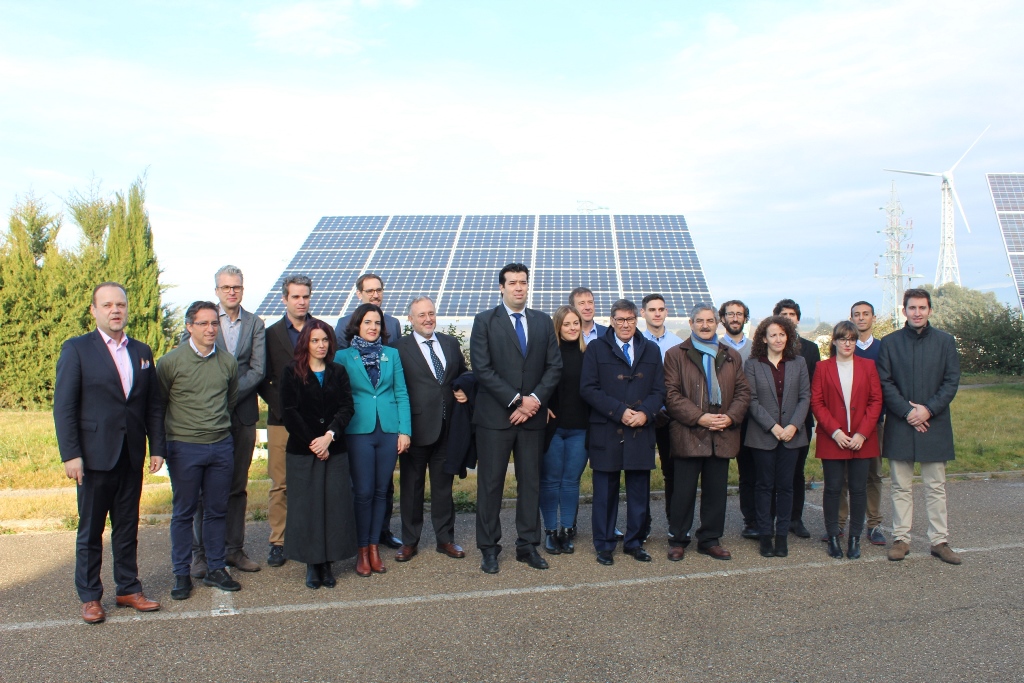HIGGS, a key project to promote decarbonisation in Europe coordinated by the Aragon Hydrogen Foundation
The Vice President of the Government of Aragon (Spain), Arturo Aliaga, has participated in the kick-off meeting to launch an European cooperation initiative that for 36 months will study the possibilities of injecting hydrogen into existing natural gas networks as a way to reduce CO2 emissions.
The new European directives on energy and the environment are clear: the continent’s economy must be decarbonized, and efforts must be intensified in order to reduce contaminating emissions with an horizon of a 45% reduction by 2030. This requires a comprehensive strategy that includes an increase in energy production from renewable sources, decarbonization of the heating and cooling systems –still largely based on fossil fuels– a significant reduction in emissions from transport as well as greater integration, flexibility and Independence of European energy markets.
In this context, hydrogen originating from renewable resources can play an important role as an energy vector that helps to meet the aforementioned objectives in areas and sectors that are difficult to electrify, which requires careful planning to bring it from where it is produced to where it is going to be used. And the current natural gas networks can be an excellent option for doing so.
This is precisely the objective of the HIGGS project (Hydrogen In Gas GridS: a systematic validation approach at various admixture levels into high pressure grids) which is now launching with the aim of analysing the existing potential and requirements of the infrastructure, its components and its management – that involves injecting hydrogen into the current high pressure natural gas transport networks, something that will undoubtedly contribute to decarbonising gas uses.
An international cooperation project
The Foundation for the Development of New Hydrogen Technologies in Aragon, located in the Walqa Technology Park in Huesca (Spain), has hosted the kick-off meeting of this Project. The event has been chaired by the president of the Foundation and Vice President of the Aragon Autonomous Community, Arturo Aliaga, who has welcomed the partners of HIGGS. REDEXIS (Spain), DVGW (German Association for Gas & Water, Germany), TECNALIA (Spain), HSR (University of Applied Sciences of Rapperswill, Switzerland) and ERIG (European Research Institute for Gas and Energy Innovation, based in Belgium) are the partners of this project coordinated by the Foundation.
The HIGGS Project has a duration of 36 months and a budget of 2 million Euros from European funding. To evaluate how different degrees of natural gas and hydrogen mixture behave in relation to the transport infrastructure, simulating different operating conditions by varying the flow, composition and quality of the gas, a testing platform will be developed at the facilities of the Aragon Hydrogen Foundation where all the elements will be tested at high pressure. Among them, a novel gas separation system developed within the framework of the Project that is based on membrane technology.
The HIGGS Project has received funding from the Fuel Cells and Hydrogen 2 Undertaking (FCH JU) under Grant Agreement no. 875091. The JU receives support from the European Union’s Horizon 2020 research and innovation programme and Spain, Germany, Belgium and Switzerland. The FCH JU is the main public-private partnership in Europe supporting research, technological development and demonstration activities in the field of hydrogen and fuel cell technologies.




